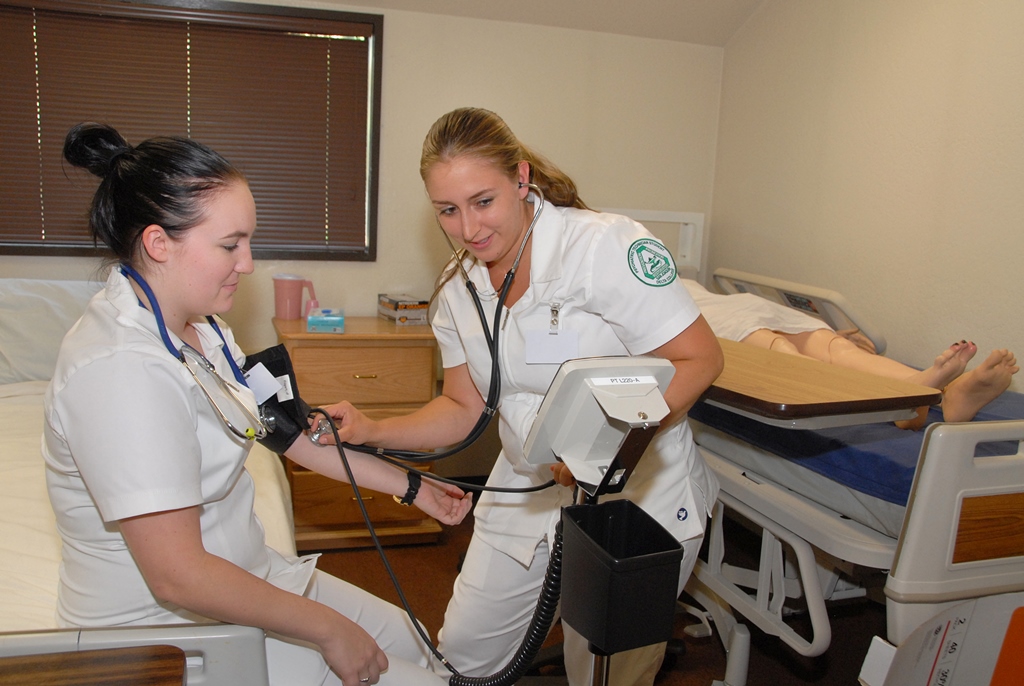
STOCKTON — Students who finish certain programs at San Joaquin Delta College enjoy substantial wage increases as a result, demonstrating just how life-changing an education at the college can be.
Students of the college’s registered nursing program saw their earnings increase by an average 588 percent within one year of finishing school, earning that program a “gold star” in the yearly Strong Workforce Stars report published recently by the California Community College Chancellor’s Office.
The college’s Caterpillar service technicians saw a 254 percent wage increase, while psychiatric technicians saw a 225 percent increase, with both of those programs also earning “gold stars.” Delta College also earned three “silver stars” and 15 “bronze stars.”
The news drives home the point that while some students use Delta as a stepping stone to a four-year university, for others Delta itself is the destination. The college offers 34 career technical education (CTE) programs through which students can earn degrees or certificates and seek employment at significantly higher wages right away. Hundreds of CTE students are graduating this month, allowing them to move into the local workforce.
"We are extremely proud of all of our CTE programs and the students who choose the CTE pathway to a successful career," said Delta College Superintendent/President Kathy Hart.

"These numbers prove what we've long known: that students can dramatically improve their lives by enrolling in career technical education programs. We're thankful to the Chancellor's Office for this recognition," said Danell Hepworth, Dean of Applied Science, Business and Technology.
To earn gold stars, programs had to meet three criteria: Students’ earnings increased by 50 percent or more, 70 percent or more of students obtained a living wage and 90 percent or more were employed in jobs similar to their field of study.
Here’s how the top career technical education finishers at Delta fared:
• Registered nursing: Students saw a 588 percent increase in earnings; 93 percent obtained a living wage (best in the state); and 100 percent were employed in a job similar to their field of study.
• Caterpillar: Students saw a 254 percent increase in earnings; 95 percent obtained a living wage; and 100 percent were employed in a job similar to their field of study.
• Psychiatric technician: Students saw a 225 percent increase in earnings; 97 percent obtained a living wage (best in the state); and 100 percent were employed in a job similar to their field of study.
“Silver stars” (met two of the three criteria):
• Fluid power and automation technology; correctional science; municipal clerk
“Bronze stars” (met one of the three criteria):
• Electronics and electric technology; machining and machine tools; welding; automotive technology; accounting; business administration; management development and supervision; child development-early care and education; speech-language pathology and audiology; radiologic technology; office technology-office computer applications; graphic art and design; electron microscopy; administration of justice; and culinary arts.

The state’s goal is to highlight programs that are seeing significant results, as well as those that are on the rise, said Van Ton-Quinlivan, executive vice chancellor of California Community Colleges.
“The Strong Workforce Stars program not only shines a light on effective programs, it provides valuable information for students exploring their program options,” she said.






